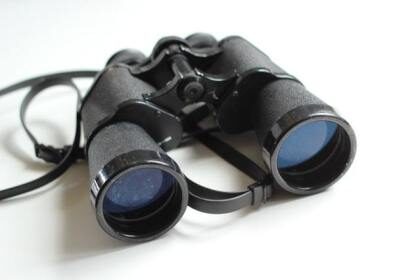
How Do I Inspect The Official Records Of My Condo Association In Florida?
As a Unit Owner of a unit located within a Condominium Association in Florida, has the absolute right to inspect the Official Records of the Condominium Association and obtain certain information as provided for in Florida Statutes. This inspection of these records is traditionally known as an Information Request or an Official Records Request. In Florida, Condominiums are controlled by their Association’s Governing Documents, which include the Condominium’s Declaration, Articles of Incorporations, Bylaws, Rules and Regulations and Chapter 718 of the Florida Statutes.
What Official Records From My Association May I Retrieve?
More specifically, Florida Statute 718.111(12), states the the Condominium Association must maintain the following items, as their Official Records: a copy of the plans, permits, warranties and other items provided by the developer; a photocopy of the recorded declaration of condominium; a photocopy of the recorded bylaws of the Association and each amendment to the bylaws; a certified copy of the articles of incorporation of the Condominium Association, a copy of the current rules of the Condominium Association, a book or books that contain the minutes of all meetings of the Condominium Association, the board of the administration, and the unit owners, which minutes must be retained for at least 7 years; a current roster of all unit owners and their mailing addresses; all current insurance policies; a current copy of the management agreement, lease or other contract to which the Condominium Association is a party; bills of sale or transfer for all property owned by the Condominium Association; Accounting records for the Condominium Association; ballots, sign in sheets, voting proxies and other papers relating to voting; all rental records; all other written records of the Condominium Association and a copy of the Inspection report.
Location Of Records And How Long Do They Have To Be Kept
The Official Records of the Condominium Association must be maintained within the State of Florida for at least seven (7) years. Additionally, the records of the Condominium Association shall be available to a Unit Owner within 45 miles of where the Association is located or within the county in which the Condominium Association is located. This is important to note if the registered agent of the Association is located in a different county. Generally, the Official Records are kept with the Management Company, Registered Agent, or on site.



Requirements And Penalties For Non-Compliance
The Official Records of the Condominium Association are open to inspection by any Condominium Association member or authorized representative of the Condominium Association member. The right to inspect includes the right to make copies. The Condominium Association must make the Official Records available within 10 days of receipt of a written request. If a Unit Owner is denied access, the Unit Owner is entitled to the actual damages or minimum damages for the Condominium Association’s willful failure to comply. Florida Statutes state that the minimum damages are $50.00 per calendar day for up to 10 days. This damage clause is important to note as it makes the Condominium Association on the hook if they do not comply. There are many reasons why a Condominium Unit Owner may want to inspect the Official Records of the Condominium Association. To name a few, you may want to read the Declaration of Condominium or the Bylaws, if you want to see the minutes of any and all meetings held by the Board of Directors or the Unit Owners, and if you want to ensure that the Board of Directors are following through with their fiduciary duties.
What Documents Cannot Be Inspected By A Unit Owner?
The documents that are NOT available for inspection are the documents protected by attorney/client privilege, any information obtained by a Condominium Association in connection with the approval of a Lease, sale or other transfer of a Unit; personnel records of the Condominium Association or management company; medical records of Unit Owners; and any personal information of Unit Owners such as the social security numbers and drivers licenses.
The Law Office of Ryan S. Shipp, PLLC has experienced and aggressive Condominium and Homeowners Association Attorneys on staff that are here to help you with all of your homeowners needs, including advocating on your behalf. As our firm represents both Condominium Associations and individual Unit Owners against Associations, we know the ins and outs of Condominium Law in Palm Beach County and throughout the State of Florida. Call us today at 561.699.0399 to see how we can assist.
You may be interested in seeing some of our other legal posts on Florida Community Associations. For your convenience, please see links below.
Community Association Legal Blog Links
Florida’s Top 10 Most Common Community Association Problems
What Official Records Can My HOA Prevent Access To?
The Hierarchy of Community Association Governing Documents in Florida,
Can a Tenant inspect the official records of a Florida Condominium Association?
As a Unit Owner how can I inspect the official records of my Condominium Association in Florida,
Florida Association Gun Control,
Florida Condominium Hurricane Preparedness and Association Emergency Powers,
Can a Florida Condominium Association Access any unit in the Association,
Florida Condominium Association Rules and Regulations,
Can a Florida Condominium Association take a Unit Owner’s Rental Income,
Florida Condominium Governing Documents,
Florida Condominium Delinquency,
West Palm Beach Homeowners Lawyers,
Lake Worth Homeowners Lawyers,






